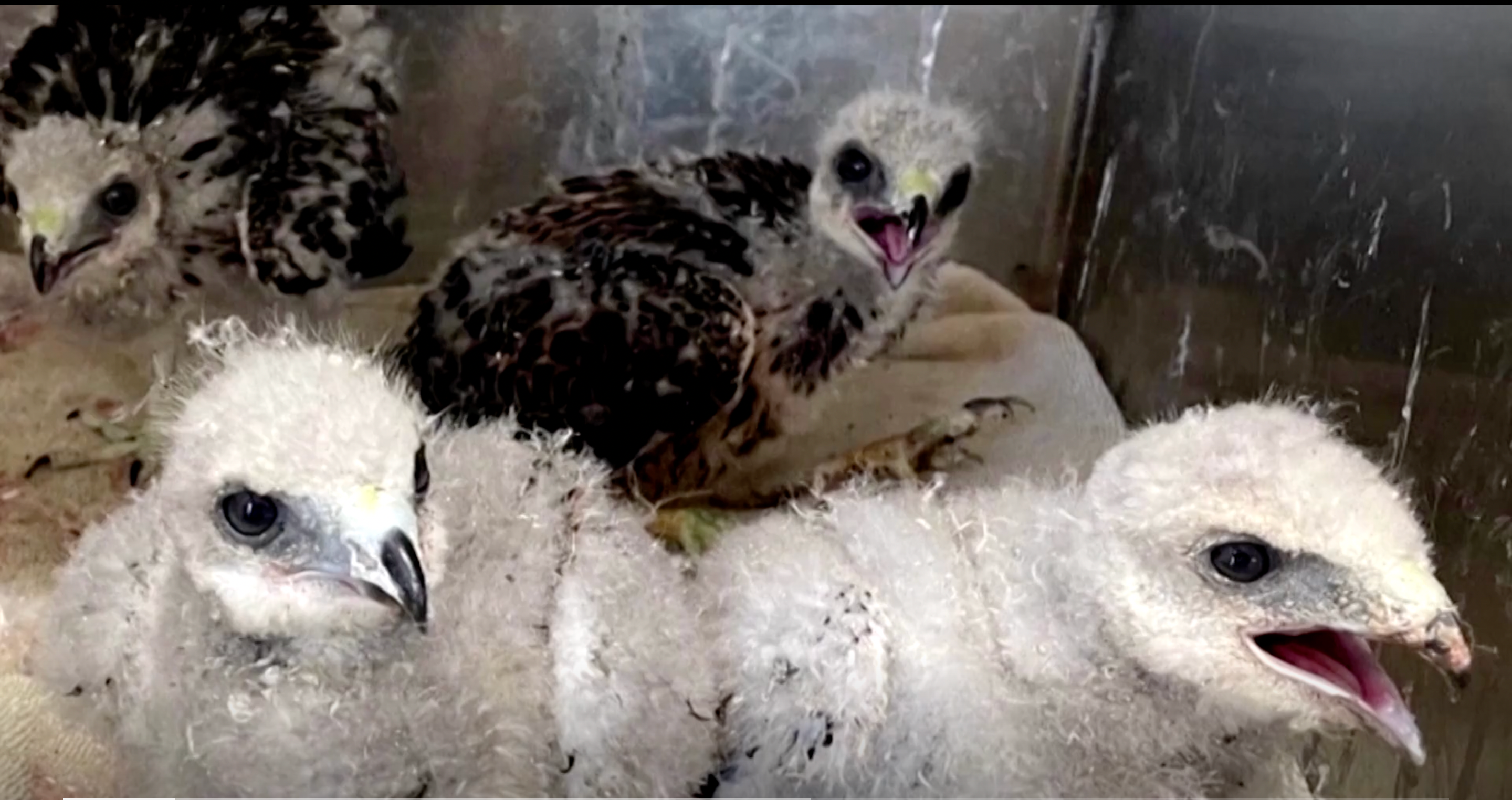Baby birds fleeing nests too early because of extreme heat on West Coast
‘I know that with climate change and the extreme heat and increasing heat, things like this are going to be more likely,’ says head of nature conservation centre in Oregon

Wildlife rescue professionals in Oregon have claimed over 100 baby birds have tried to escape their nest prematurely due to the heatwave engulfing the Pacific Northwest.
Conservationists from Pendleton working at Blue Mountain Wildlife, a organisation committed to helping nature thrive, reported that most of the birds survived their falls but faced injuries. Tragically, 13 had to be put down. Most of those who tried to flee their nest too early were Swainson hawks and Coopers hawks.
“We’ve never seen anything like this before,” the organisation’s executive director Lynn Tompkins told Reuters.
Pendleton’s thermostat hit 47C on 29 June, which was one degree less than the town’s highest ever recorded temperature of 48C in 1898, according to the National Weather Service.
Ms Tompkins expressed hope that things might be different soon, however acknowledged that the climate crisis was not making that likely.
“So hopefully, next year won’t be the same. But I know that with climate change and the extreme heat and increasing heat, things like this are going to be more likely,” she continued, saying they had been swamped with calls from people worried about local wildlife.
Ms Tompkins provided tips on how to help distressed birds suffering from the heat, such spraying them with a sprinkler on a light setting. She ruled out taking them away from their nest.
She said, “Almost all of them, the parents were still there, and we really hate to take babies of any kind away from their parents because they’re the most qualified to take care of them.”
Last month was Oregon’s second hottest June, according to the National Centers for Environmental Information. The average temperature there in June is 22C.
The impact is it having on these birds is just one of the many side effects of the heatwave, which is believed by many experts to be caused by the climate crisis. The heat also has a human toll, with hundreds of deaths reported in the US.
In a statement, Dr Jennifer Vines, the health officer for Multnomah County, said, “This was a true health crisis that has underscored how deadly an extreme heat wave can be, especially to otherwise vulnerable people.”
This was after the death toll hit 45 in the county (including the city of Portland) on July 1.
“I know many county residents were looking out for each other and am deeply saddened by this initial death toll,” she continued. “As our summers continue to get warmer, I suspect we will face this kind of event again.”
Currently, forest fires are blazing in the Fremont-Winema National Forest. The fire that has ripped through 153,000 acres has been nicknamed the Bootleg fire, and firefighters are reportedly struggling to make progress putting it out.
Join our commenting forum
Join thought-provoking conversations, follow other Independent readers and see their replies
Comments